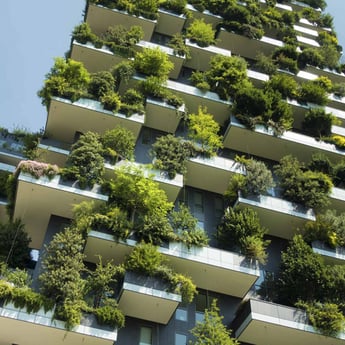Have we arrived at the conscious city?

Jon Gibson looks at the growing importance of sustainability in the real estate industry and how a greater understanding of the relationship between health and the built environment is creating a new normal.
We believe that evolving cities hold the key to solving the UK’s most intractable economic and social problems. Technological innovation, generational change and the diversity of the economy are changing the way people work, live and play in cities. Resilience and sustainability are essential for cities to thrive in this new world.
The importance of sustainability in the real estate industry has grown in prominence in recent years, particularly within the context of cities. More recently, the rapid rise of building certifications such as the WELL Building Standard and Fitwell, signifies a new wave of sustainability. This follows research that links high performing sustainable buildings to better health and wellbeing outcomes for the people using them. As more and more business leaders realise the productivity benefits linked to this, our experience has extended to health and wellbeing advice for clients to help them reach their own aims to deliver better spaces.
Establishing a new normal
Landlords and developers clearly understand how businesses are thinking, and are investing into this Futureproofing strategy as a result. Whilst progressive businesses are attracted to these spaces, in the future it is not hard to see a time where these certifications establish a new normal, and buildings without them lose their appeal and economic value. One forward thinking developer, Lendlease, even has a vision that their employees “will leave the office each day in a better state of health and mind-set than when they arrived”. It is this ambition that will provide the catalyst for further change and respond to changing employee expectations in the process. We need to keep exploring the relationship between the health of the built environment and our own wellbeing in order to deliver solutions that maximise the potential of both.
Cities as engines for growth
We believe that cities can be engines for growth and maintaining this is vital to a cities inhabitants and the success of its other connected systems, such as infrastructure and housing. This is why GVA is a lead sponsor on the steering committee for the UKGBC’s Cities Programme, which is focussed on creating the right partnerships between policy makers, city authorities and businesses to enhance the sustainability of buildings and infrastructure for British cities.
Looking ahead – The conscious city
Looking ahead, it is likely that increased personal control of the workplace environment and greater levels of transparency, aided by access to a font of data from the Internet of Things (IoT) and sensors, will help us learn more about how our environments affect us. This in turn can educate us on how we create our environments through 360 degree feedback loops. We predict that Artificial Intelligence (AI), robotics and advances in neuroscience could lead to innovative ways of informing building design, something which could lead to powerful physiological and health benefits. To this end, the future of buildings and real estate will not be determined only by advances in our ability to create buildings, but in our capacity to utilise and understand people-driven information, putting reaction ahead of creation.
The truth is we are as much shaped by the built environment as we shape it through our roles as developers, constructors, advisers and architects. This puts the real estate industry in a position of both tremendous opportunity and responsibility, as we build cities for the future and create spaces that are resilient and enable individuals to thrive.
